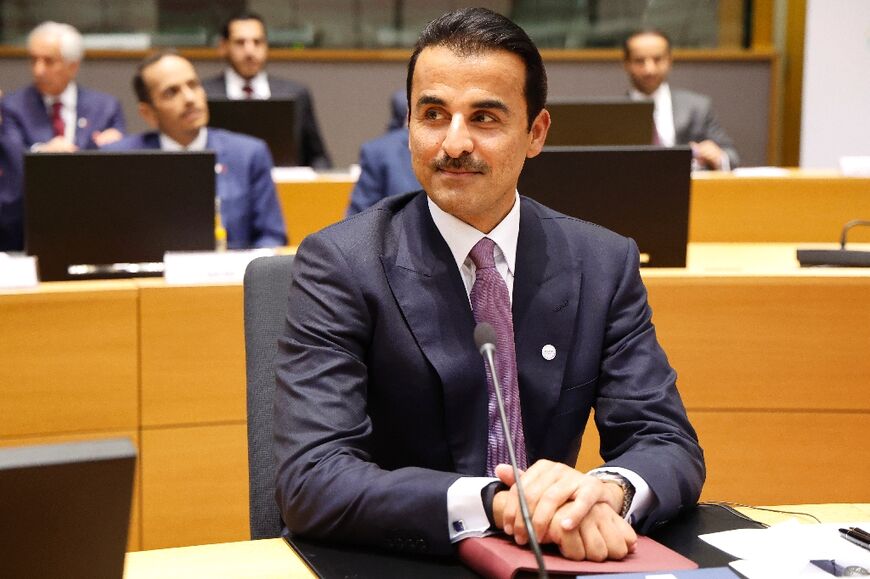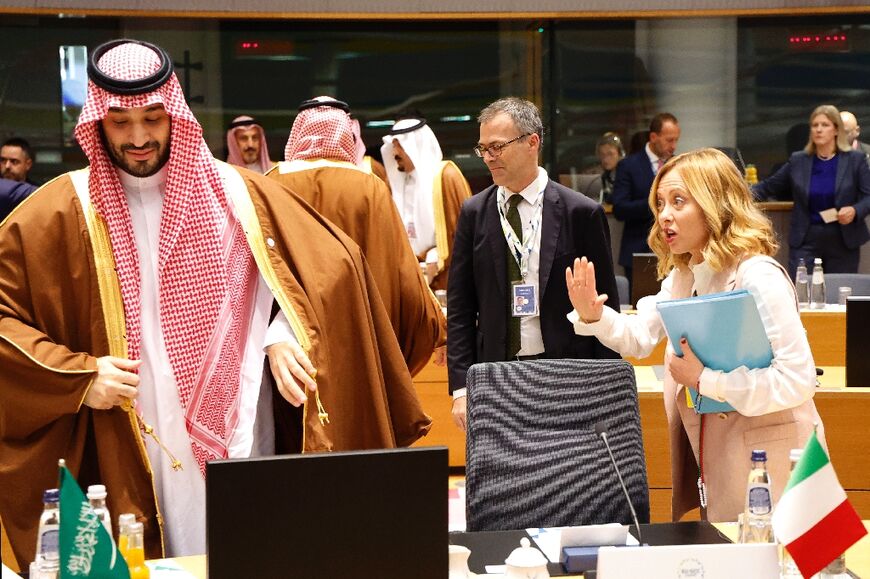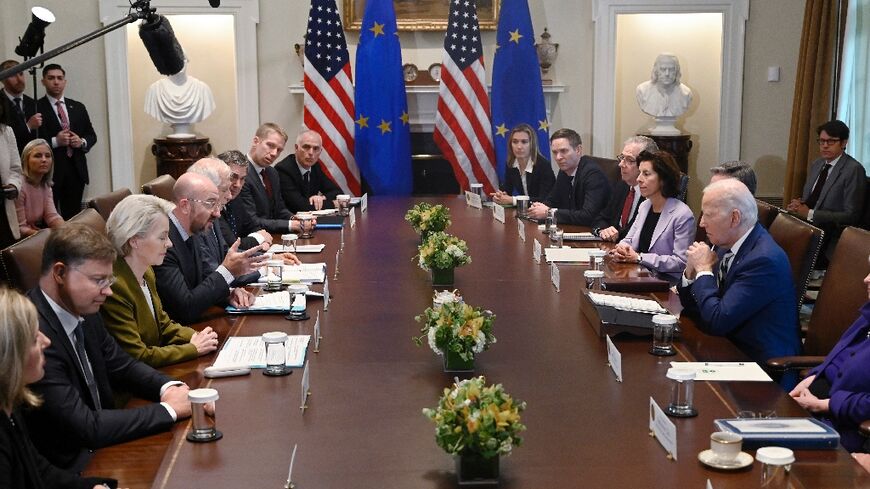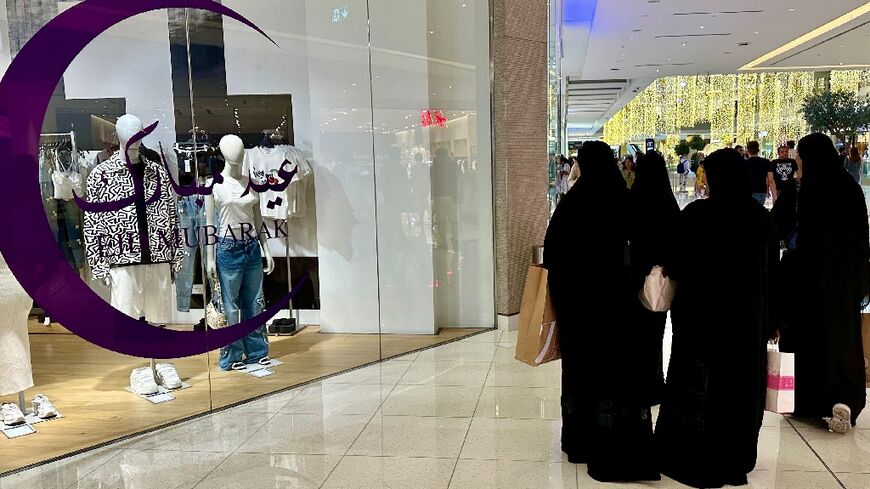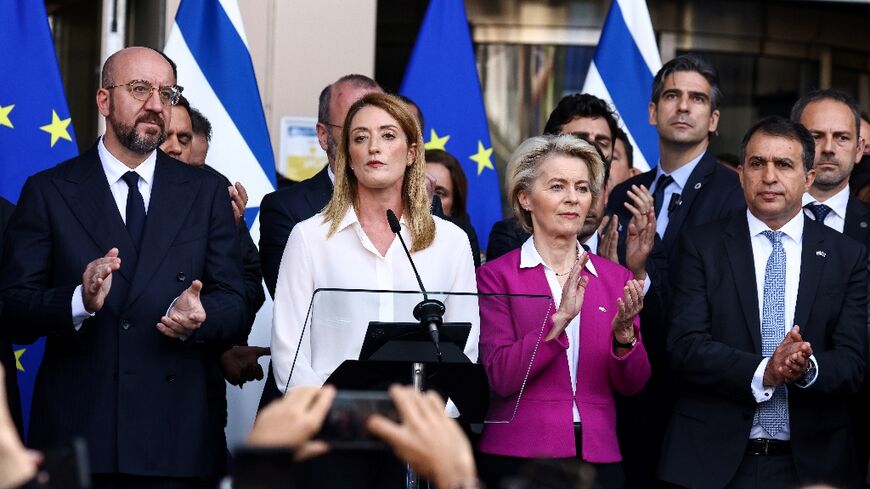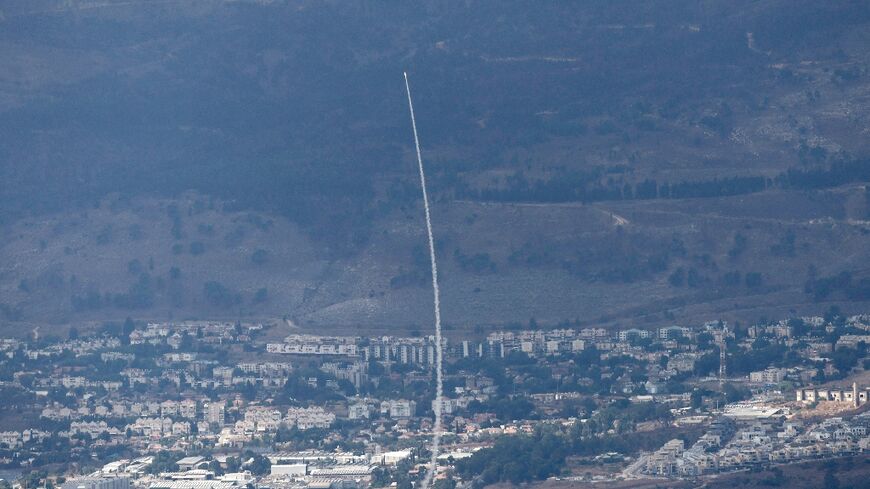Middle East crisis top-of-mind at first EU-Gulf summit
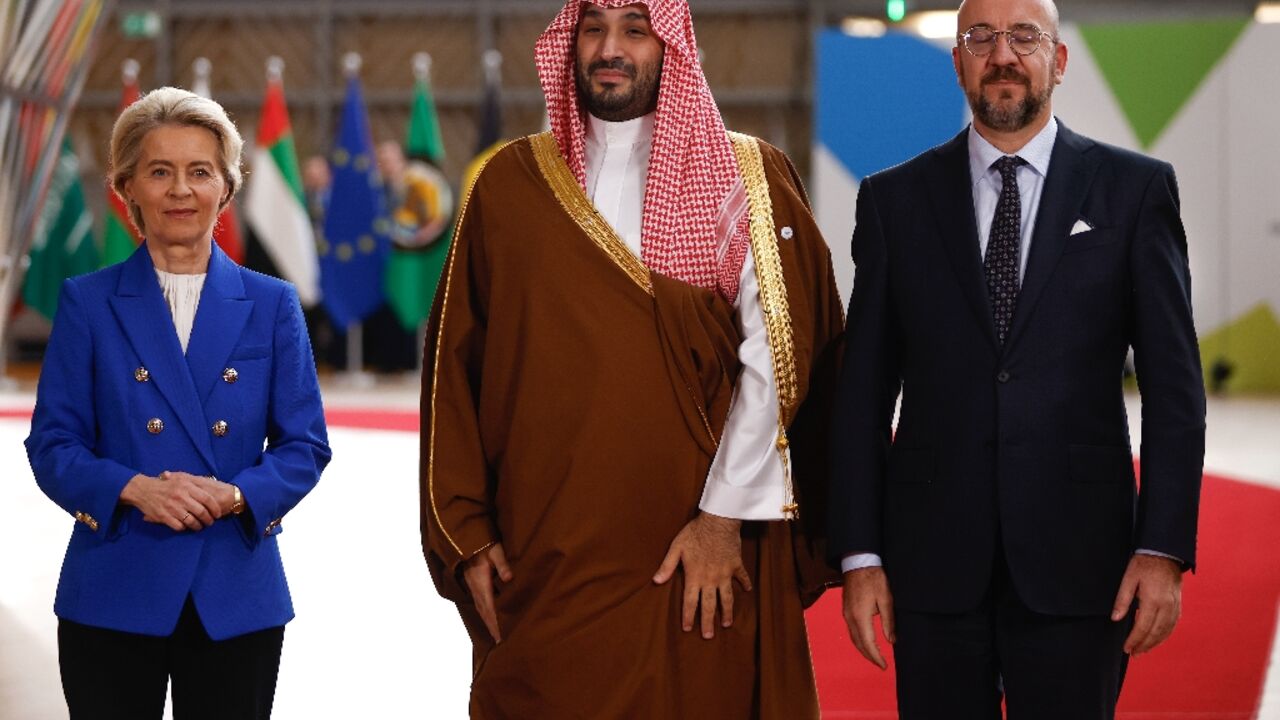
Gulf leaders including Saudi Crown Prince Mohammed bin Salman met with EU counterparts in Brussels Wednesday for talks they hoped could help defuse an "extremely dangerous escalation" in the Middle East.
The 27-nation European Union is seeking to work more closely with the Gulf Cooperation Council (GCC) -- Bahrain, Kuwait, Oman, Qatar, Saudi Arabia and the United Arab Emirates -- over conflicts in the Middle East and Ukraine.
"Our shared priority is an immediate and sustainable ceasefire, the release of hostages and full humanitarian access to civilians in Gaza," the EU's top diplomat Josep Borrell told a press conference.
The two groups called for a ceasefire in Lebanon and condemned attacks on UN troops in the country, he added.
The first gathering of its kind, the EU-GCC summit came on the eve of an EU leaders' meeting in the Belgian capital.
Trade, energy and climate change were all discussed, but Israel's conflicts in Gaza and Lebanon dominated the agenda.
"We need a settlement for these conflicts," said Qatar's emir, Sheikh Tamim bin Hamad Al-Thani.
"We hope that this first summit will be the first step to consolidate our historic ties between the GCC and the EU."
He was echoed by EU chief Ursula von der Leyen who told the gathering: "We need to do all in our power and mobilize all our diplomatic skills to stop the extremely dangerous escalation".
- 'Unprecedented opportunity' -
The EU is the second-largest trading partner for GCC countries and Borrell said the summit agreed to speed up negotiations on a free trade agreement that have languished for years.
Gulf countries' push to obtain a visa waiver for their citizens to enter the Schengen free movement area however did not yield immediate results.
While views differed on Russia's invasion of Ukraine -- in particular the implementation of Western sanctions and the EU's push to punish Iran for bolstering Moscow's war effort -- there was hope of closer cooperation.
"I'm confident that we can work together and rely on you to stop this illegal Russian war," von der Leyen told Gulf leaders.
The Brussels summit came just over a year into the war between Israel and Iran-allied Palestinian militants Hamas that has in recent weeks expanded to include Lebanon -- raising fears of a major regional conflict.
Traditionally Western allies, the resource-rich Gulf monarchies have listened more to Iran, which backs Hamas in Gaza and Hezbollah in Lebanon.
They have repeatedly called for the creation of a Palestinian state alongside Israel, with some mediating efforts to secure a ceasefire in Gaza.
Hezbollah had been exchanging cross-border fire with Israel for almost a year, saying it is acting in response to Israel's devastating war on Gaza.
The conflict began after Hamas militants launched a surprise attack into Israel on October 7, 2023.
The EU-GCC meeting presented "an unprecedented opportunity to discuss issues of mutual interest," said Saudi Arabia's Prince Mohammed, the country's de facto ruler.
His red carpet welcome in Brussels however sparked criticism over Riyadh's poor human rights record.
"European leaders smiling and shaking hands with a man allegedly responsible for having a journalist dismembered is deeply disturbing," said EU lawmaker Daniel Freund, of the Greens.
Prince Mohammed, who has pushed to open up the country to tourists and investors, was linked by US intelligence to the brutal killing of Saudi critic Jamal Khashoggi in 2018.
Human Rights Watch called for EU leaders to press their Gulf counterparts for reforms -- including on the jailing of political prisoners, freedom of expression, labour and women's rights.
"EU leaders should make it clear that the release of critics and progress on human rights are vital for bilateral relations," said Claudio Francavilla, the group's associate EU director.
A joint statement after the summit made a broad reference to the groups' commitment to ensure "the respect, protection and promotion of universal human rights".


